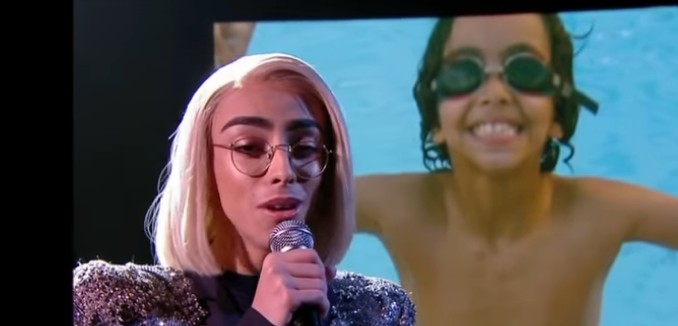France‘s Eurovision contestant says he “can’t wait to visit” Israel despite death threats he received over his decision to perform in the Jewish State, The Times of Israel reported Thursday.
Bilal Hassani, a 19-year-old from Paris who was born to a Muslim family of Moroccan origin, won France’s selection contest for Eurovision with his song “Roi.” Hassani, who is gay, confessed in an interview with Israeli TV that he has received hateful messages, including death threats, due to his sexuality and decision to perform in Israel.
“Sometimes there are people who try to make it a political event but I’m not about that. The stage is a sacred place,” he told Channel 12 on Tuesday, as he confirmed he had filed a police complaint this week for online harassment.
Hassani said he was excited about visiting Israel, despite mounting pressure not to travel to Tel Aviv, where the Eurovision song contest will take place in May. “I can’t wait. I heard the life is really exciting over there in Tel Aviv. I can’t wait to see the sun and I can’t wait to visit,” Hassani said.
“I’ve been watching Eurovision ever since I was a little boy. It was always something that I used to say, ‘One day I’ll represent France at Eurovision,’” he added. “I am just a boy from maybe the new generation who really feels like he can do anything.”
The anti-Semitic Boycott, Divestment, and Sanctions (BDS) campaign and their supporters have intimidated artists in the past for their decision to perform in Israel.
In November 2017, Australian rocker Nick Cave said he had not played in Israel for two decades because of pressure applied by members of the music industry that support BDS efforts. “If you do come here (…) you have to go through public humiliation from Roger Waters and his partners and no one wants to embarrass themselves publicly,” he stated. “For 20 years, I said, ‘let’s give it up,” Cave said of plans to come to Israel.
Israel won the right to host the 2019 Eurovision song contest after Netta Barzilai won the 2018 edition, which took place in Lisbon, Portugal. On Friday, Barzilai just released her first original song since “Toy,” titled “Bassa Sababa.”
Earlier this month, anti-Israel protesters interrupted an event of Barzilai in Paris, holding a sign reading “No to Eurovision 2019 in Israel,” before being escorted away.
On Tuesday, some 50 British cultural figures signed a letter published in the Guardian in which they urged the BBC to use its influence to “press for Eurovision to be relocated to a country where crimes against that freedom are not being committed.” The BBC and Eurovision rejected their demand, saying “The competition has always supported the values of friendship, inclusion, tolerance and diversity.”
[Photo: Destination Eurovision / YouTube ]




